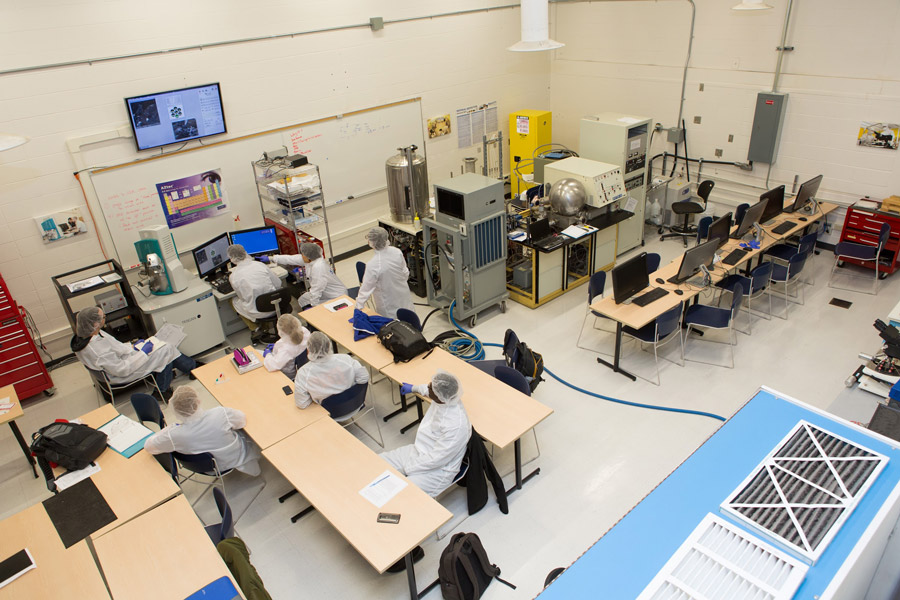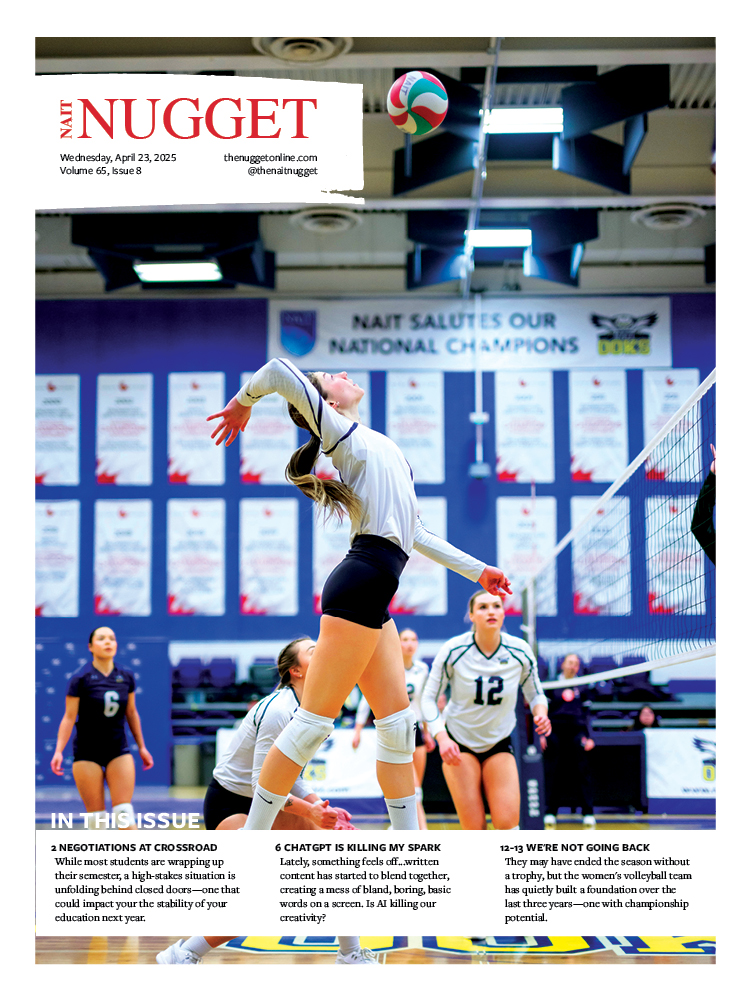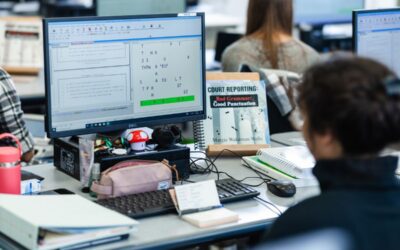When it comes to technology, size does matter. In many ways, technology has always been about making things smaller. With each new iteration of a smartphone, they seem to shrink; even with the expansion of the screen, devices keep getting slimmer, seemingly on a race to be paper thin.
It is now 2017, and things are smaller than ever with the rise of nanotechnology.
Nanotechnology is a relatively new field of study, relating to the application of nanoscience through technology. NAIT is at the forefront of this emerging industry with the Nanotechnology Systems program.
The Nanotechnology Systems program is the first diploma of its kind in Canada. The program runs for
two years and provides a strong foundation of electronics, instrumentation, material science, chemistry and biochemistry. These practical applications are also supported
by courses in ethics and communications.
However, you may be wondering what nanotechnology actually is. I’m sure you’ve ascertained that ‘nano’ essentially means small. How small? Realistically, it’s difficult to put into words. Suffice it to say, one nanometre is a billionth of one metre. Therefore it’s an excruciatingly small fraction that’s next to impossible to see with the naked eye.
Nanotechnology itself (in the simplest of terms) is the branch of technology that deals with such tiny dimensions, especially the manipulation of individual atoms and molecules. As the name implies, it is the use of technology conducted at the nanoscale.
Nanoscale can be difficult to imagine. Try and visualize in your mind the size of planet Earth. Comparatively, if a single marble were a nanometre, than one metre would be the size of Earth. Or you can look at a ruler. The length of one inch on that ruler, would be made up of 25,400,000 nanometres. Small doesn’t even begin to describe the dimensions that nanotechnology deals with.
Part of what makes nanotechnology and nanoscience unique, is that it can be applied to virtually all other scientific fields, including (but not limited to) chemistry, biology, physics and engineering. This diversity grants great potential to not only the job market, but also to the potential of the research that can be conducted. Since this is the first diploma of its kind in the country, NAIT has the potential to give students a unique advantage starting out. The Nanotechnology Systems program is meant to provide students with a wide breadth of knowledge on how nanotechnology can be applied to those various scientific fields, specifically emphasizing electronics, biochemistry and material science.
The nanotechnology sector in Canada is just beginning to emerge. The provincial government has invested in the field, which is quickly making Alberta Canada’s nanotechnology epicentre.
Currently, Alberta is home to more than 40 growing companies within the nanotech sector, many of which are located in Edmonton. Strong growth is expected to be seen in the near future within the field, as it applies to many different industries; everything from energy, lubricants, pharmaceuticals, cosmetics, food, auto-motives and beyond. The reason nanotechnology is involved in
multiple industries, is because of its potential to see and manipulate individual atoms and molecules. By manipulating those atoms and molecules, products (food, clothes, buildings, lubricants, medicine, etc.) can be improved on a molecular level.
Because the Nanotechnology Systems program’s training is so broad, graduates are expected to be able to find work in a diverse group of fields. Specific examples for employment include the National Institute for Nanotechnology, the Alberta Centre for Advanced MNT Products, Quantiam Technologies, Maxxam Analytics and Jet Lube Canada. With that being said, the industry is forecast
to keep expanding and new career opportunities are expected to arise.
Much of the program is based in lab experience. Students will be working hands-on with professional equipment and systems with both researchers and manufacturing companies alike. Courses alternate between lectures and labs, as well as trips outside of NAIT, such as to the nanotechnology facilities at the University of Alberta. Guest lecturers are also expected to speak to the class of 24 students, while labs are reduced in half for safety protocols.
Does size matter? Does it ever.
For general information about the program, reach out by e-mail: nan@nait.ca or by telephone at 780-471-7663.
– Alan Holmes, Co-Entertainment Editor
– Photo by Tim Potter, Photo Editor






